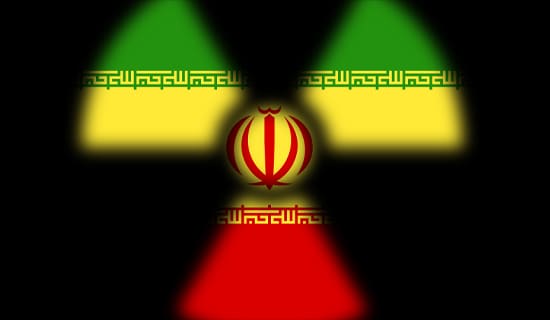Six months into the war and with Ukraine celebrating its independence day, Kommersant senior commentator Dmitry Drize lists the downside of the war: The war has thoroughly alienated Ukrainians from Russia, Russians are being excluded from Europe, and an expanded NATO is experiencing a renaissance. Drize's colleague, Maxim Yusin connects the events in Ukraine with the collapse of the American supported regime in Afghanistan a year ago. The Afghanistan fiasco left America's leadership and its intelligence agencies thoroughly discredited. Ukraine allowed the US to wash away the disgrace of Afghanistan, and allies who had voiced doubts and skepticism about US leadership are lining up behind it.
This being today's Russia, both writers soften their punches and hedge their bets. Drize points to the energy crisis in Western Europe, while Yusin reiterates the argument made by many Russian commentators that Zelensky may very well prove to be the next Ghani once the Americans have tired of him.
The two columns follow below:

Dmitry Drize (Source: Kommersant.ru)
Dmitry Drize notes the downside of the war for Russia:
"Ukraine’s Independence Day and 6 months of a special military operation [hereafter - SVO] are the time to take stock. It’s impossible to draw a complete picture of events unfolding there, but there are a number of aspects to which I would like to draw attention.
"According to the latest survey data of the Ukrainian Rating polling group, at the moment, 81% of the country's citizens have a negative attitude towards Russians (in April this indicator was 69%, and a year before- 41%), with 14% of the respondents expressing neutral sentiments, and only 3% positive ones. One could argue that their data is biased, but unfortunately there is no other [data]. Actually, something tells me that these figures may accurately reflect the existing sentiments in the neighboring republic.
"A word or two about the international situation. A new wave of de-communization is happening in the Baltic states: Soviet military monuments are being dismantled. The population is protesting, but it is hard to call it mass rallies. In Europe, there is an active discussion underway on whether to ban, restrict or otherwise discriminate against the entry of our compatriots to the Old World. Despite the fact, that under the current realities and even with a Schengen visa it’s not easy to get there at all.
"Sweden and Finland are already practically in NATO. And overall, the North Atlantic Alliance is experiencing a renaissance, a second birth. America is redeploying additional forces to Europe; the allies’ armies are being equipped with modern arms. President Sauli Niinisto’s statement is telling, 'In the current circumstances, little is left of Finland’s former relationship with Russia.”
"And here’s the latest news: a promising destination for Russian travelers has appeared - Ethiopia.
"However, one had to be objective. The democratic West is cutting back on showering time, turns off air conditioning… It’s scary to think what will happen in winter. The general conclusion was voiced by French President Emmanuel Macron, 'the "period of plenty" is coming to an end, we are experiencing major upheavals.' So, any forecasts about what’s next are useless, but there are facts.
"Ukrainian President Volodymyr Zelensky announced that his goal is victory, and that talks with Russia, at least for now, are impossible. The US presented Ukraine with a non-refundable grant worth 3 billion USD for Independence Day. And, perhaps most unpleasant and exciting is the prospect of a nuclear apocalypse. This is no longer a joke or a fantasy.
"A new reality is upon us, and it’s hard to argue with that. The main problem is the lack of certainty. There are no perfect solutions, and the risks are getting high. Regarding the sentiments of ordinary Russian citizens, the main trend is clear without any polling: it’s better to sit tight and wait out what is occurring. The question is, “how well do such sentiments meet the goals and objectives of the country’s course for sustainable development? I’ll leave it unanswered.”[1]
Maxim Yusin claims that Ukraine helped America and its allies forget about the Afghanistan debacle that occurred only a year ago:

Maxim Yusin (Source: Starbiography.ru)
"Exactly a year ago, the US underwent an event, that many perceived to be a geopolitical catastrophe. The Taliban forces entered Kabul, and the regime of President Ashraf Ghani, on which the Americans were banking on, collapsed like a house of cards. The Afghan army (along with hundreds of billions of USD spent on equipment and armaments) surrendered almost without resistance, and Washington had to conduct humiliating negotiations with Afghanistan's new masters to allow the remnants of the Western military contingent to leave the capital unhindered.
"The Afghan saga became a true fiasco for the US image abroad. President Joe Biden did not present himself in a highly favorable light, in taking the far from obvious decision to withdraw his troops and, thereby, abandoning his allies to the mercy of fate.
"But the intelligence agencies and military analysts who predicted that President Ghani would remain in power long after the US withdrawal, and that the Afghan army, equipped and trained by the Americans, would be capable of successfully fighting off the Taliban for many months, discredited themselves even more.
"The reality surpassed the most pessimistic predictions. The regime collapsed and the army scattered even before the US troops had managed to leave the country, which came as a true shock and sowed serious doubts in the hearts and minds of US allies around the world. However, later a paradoxical thing happened. Events in Ukraine forced the US to forget about the Afghan fiasco and washed away the Kabul disgrace.
"The special services, who had discredited themselves in Afghanistan, were fully rehabilitated this time.
"It’s precisely the predictions of American intelligence as to how and under what scenario hostilities would unfold that turned out to be closest to reality. And in the eyes of America's allies, its position, undermined after Afghanistan, has now been reinforced. A new anti-Russian coalition is lining up around Washington, its leadership isn’t disputed even by those, who until recently allowed themselves doubts and skepticism. And still, the Afghan precedent was too serious and painful to be so easily forgotten.
"The media reports popping up about accumulating dissatisfaction in the US with Ukrainian President Volodymyr Zelensky's team, that congressmen are bothered by corruption in Ukraine and settling scores with political opponents, and that military aid is not always being used effectively, must be causing bad associations in Kyiv.
"In precisely the same way, the dissatisfaction with Afghan President Ghani gradually but steadily was building up in Washington, and then, one day, he was 'written off.' This, alas, happens periodically in US relations with its allies and clients."[2]








